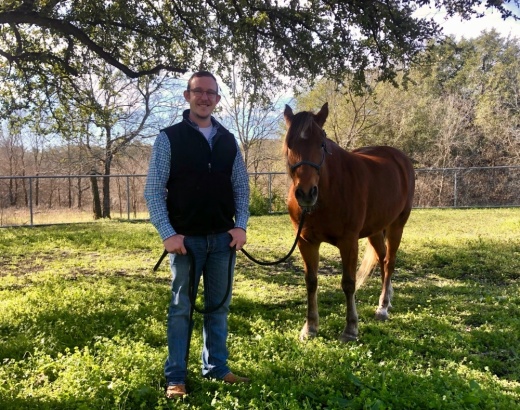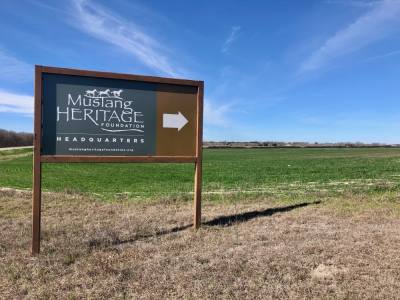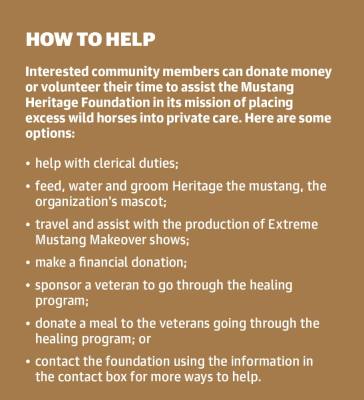About 88,000 horses live on rangelands in 10 Western states, and that is about three times over the appropriate population, Kappert said. The ranges can sustain about 27,000, so the excess creates scarcity of food and water. About 50,000 mustangs have been gathered by the Bureau of Land Management and are in long-term corrals and off-range pastures.
Each one of those 50,000 horses in long-term holding costs taxpayers about $50,000 over the course of its life, Kappert said.
Enter Mustang Heritage Foundation, an organization headquartered in Granger that is focused on placing the excess wild horses and burros into private, adoptive care through a variety of programs.
The initiative that achieves the highest volume of placements is the trainer incentive program, Kappert said. A horse trainer obtains and tames, or gentles, an animal and teaches it how to be caught, haltered, loaded in and out of a trailer, and more.
“For every horse they train that gets adopted, they get a $1,000 payment,” Kappert said, adding the organization works with trainers in all 48 mainland states.
A more well-known program is the Extreme Mustang Makeover, a competition where trainers have about 100 days to take a horse that has never been touched and gentle and train it to compete in a show.
The Veterans & Mustangs Program is facilitated at the headquarters. Veterans or active-duty military members are paired with a horse that has never been handled and work to gentle and train it.
“The horses end up being very reflective of the veterans,” Kappert said. “They’re scared, and they don’t know what’s going on, and a lot of veterans feel the same way, so there’s a healing and therapeutic process that occurs with pairing these veterans and mustangs together.”
He said while healing is the main focus, veterans also learn basic vocational skills for the equine industry and participate in additional emotional intelligence workshops. The next session kicks off March 30, and about 10 veterans will go through the 30-day program where they will work with their horses five days a week. The participants sometimes bring campers or stay at hotels in Georgetown, Kappert said. About 55-60 veterans have completed the program to date.
The foundation is also launching a Patriot Pro Mustang Showdown at the inaugural Williamson County Fair and Rodeo this fall. It will consist of six veterans pairing up with six professional mustang trainers to compete in a tournament.
“It gets the mustangs and veterans involved and raises awareness of the organization within the community,” Kappert said.
Mustang Heritage Foundation was founded in 2002 but has been active to its current scale since 2007. The headquarters moved from Georgetown to Granger in 2012, but it maintains both a P.O. box and an active presence in the Georgetown community, Kappert said.
An open house is in the works for October, where Kappert hopes to see locals come out to visit and learn more about the operation.
Mustang Heritage Foundation is located at 870 CR 156, Granger. 512-869-3225. https://mustangheritagefoundation.org







